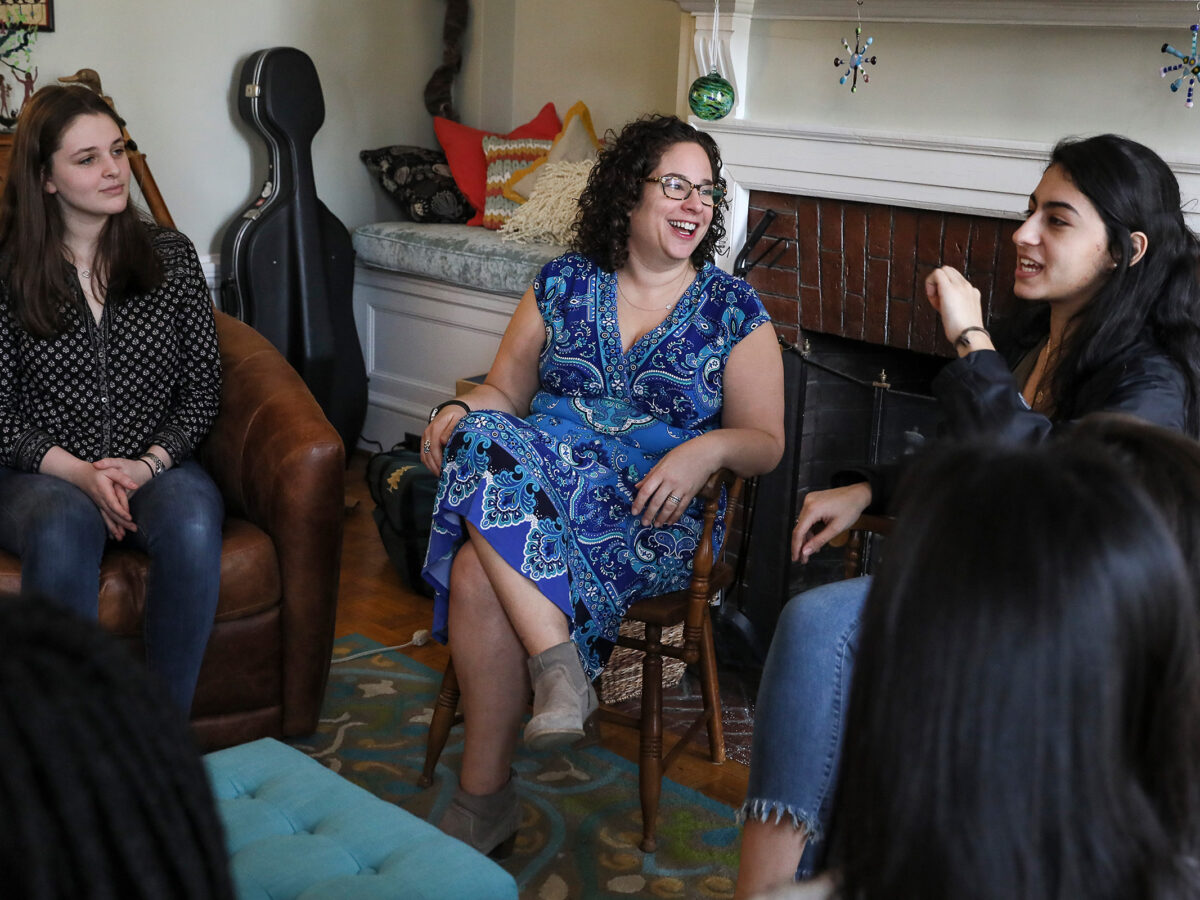Jennifer Marx Asch

Jennifer Marx Asch understands teenagers. She enjoys their company so much that she has gone out of her way to adapt to what she calls their “vampire hours” in her commingled roles as head of Dunbar Hall, religion instructor, and adviser to the Exeter Jewish Community.
“One of my goals as dorm head is to get to know every student well enough that I can see their face and know if something’s off,” she says, noting that Dunbar is home to 65 students. “It’s really important for me to make connections with each and every kid in the dorm.”
It’s a team effort that includes four other dorm families, three affiliated dorm faculty members, and a crew of student proctors and student listeners. (Proctors are selected by dorm faculty to enforce rules and help plan and execute dorm events; listeners are trained to provide a friendly shoulder for students struggling with stress or homesickness and act as a bridge to adults who can help with more serious issues.) Together, the team holds weekly meetings during which they plan monthly events for the entire dorm, including affiliated day students. Those might include karaoke, a late-night movie or a pop-up pizza party.
And every night, one faculty member keeps the door open for students who would like to drop by. Marx Asch’s designated night is Sunday, when she usually finds herself with a dozen students hanging out in her living room.

“You tend to have better conversations once the sun is down. It’s nice to be here during those hours, if they want to talk or are having a rough day and need a hug,” says Marx Asch of what she says may be the biggest perk of living on campus.
“Teenagers are developmentally at that sweet spot where they’re passionate about everything but aren’t cynical yet. They have this wonderful openness,” adds Marx Asch, the mother of two current Exonians and one younger child, which extends the open-door nature of her family’s home further.
With a master’s in Jewish education in addition to her rabbinical ordination, Marx Asch moved to New Hampshire in 2006 with her husband, a physician now known around Dunbar as “Dr. Mr. Rabbi.” She soon accepted an offer to lead a women’s group at a synagogue in Portsmouth. That turned into an invitation to host a mock Seder in an Exeter Judaism class, which then evolved into a position filling in for an Exeter religion teacher who was spending a semester abroad. Marx Asch stayed, and her class load soon grew. Because the Religion Department includes philosophy, psychology and ethics, Marx Asch, whose own undergraduate degree is in psychology, teaches a variety of courses: Human Capacity for Good and Evil, which examines the Holocaust; a social ethics class; introductory psychology; Faith and Doubt (fondly called “baby existentialism”); and a new course that she designed, Soul Searching.
When not teaching or heading dorm meetings, Marx Asch juggles the duties of a rabbi—leading services and officiating at high holidays, guiding students who would like to begin or continue Jewish studies, and serving as a spiritual and pastoral counselor. She’s particularly fond of one Shabbat tradition she helped institute, in which a group of students cook a big dinner and serve it in the basement of Phillips Church Friday nights to some 60 “Jews and friends of Jews.” The evening begins with a Sabbath prayer and singing, and then each person is invited to share something positive from the week that’s just ended. Cell phones are not allowed. Marx Asch says even students who are no longer practicing Jews—or never were—tell her it’s their favorite way to end the week.
“The last bell rings on Friday and everyone comes skidding over to the church,” says Marx Asch. “I have everybody take a deep breath and exhale out all the stress from the week, and we light the candles and feel the joy and relaxation of the Sabbath. It’s a nice way to make a little base to refresh our souls.”
— Sarah Zobel


